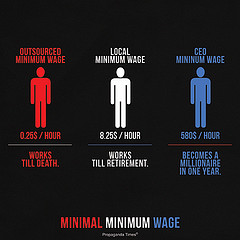In a confusing twist of legal back and forth, some of the strictest abortion regulations in the country have taken effect in Texas. The state’s proposed abortion restrictions, including limiting medication-induced abortions and requiring abortion doctors to have admitting privileges to a nearby surgical center, were initially struck down by a district court because the restrictions would effectively deny women the right to abortions. A full appeal will be heard in January, but these restrictions have caused a third of the clinics in Texas to stop offering the service until then.
While this is a legal battle on the surface, the debate surrounding abortion stems from longstanding and deeply conflicted cultural norms regarding sexual behavior, the care of children, family structure, and gender roles in society.
- Kristen Luker. 1985. Abortion and the Politics of Motherhood. University of California Press.
Despite variations in state restrictions on abortions, legislative restrictions have very little impact on a state’s abortion rate.
- Marshall H. Medoff 2002. “The Determinants and Impact of State Abortion Restrictions.” American Journal of Economics and Sociology 61 (2): 481-493.

